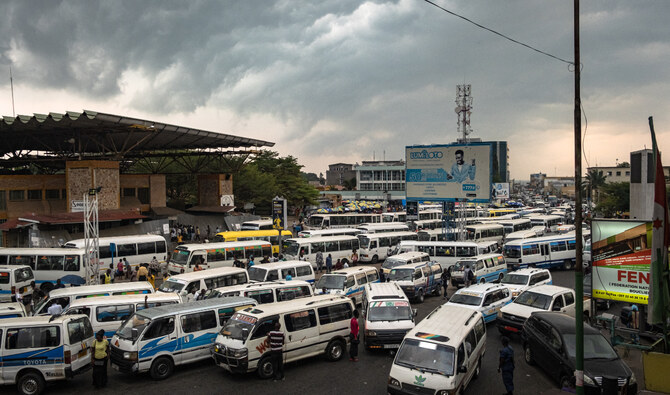NAIROBI: Burundi’s President Evariste Ndayishimiye continues to rule with an unrelenting “wave of repression” despite hopes of change when he took office four years ago, Amnesty International said Wednesday.
Human rights defenders, journalists and members of the opposition are still subject to intimidation, harassment, arbitrary detention and unfair prosecution, Amnesty said in a new report.
Ndayishimiye, who took power in June 2020 after the unexpected death of president Pierre Nkurunziza, has been lauded by the international community for slowly ending years of isolation under his predecessor’s chaotic and bloody rule, although concerns about rights abuses persist.
In 2015, Nkurunziza’s run for a third term in office sparked protests and a failed coup, with violence leaving at least 1,200 people dead while about 400,000 fled the country.
Amnesty said that after Ndayishimiye took the helm in one of the poorest countries on the planet, there were signs he was seeking to “loosen the stranglehold” over civil society and the media, with several rights campaigners and journalists released during his first year as president.
“The ongoing wave of repression has dashed hopes of a meaningful change in approach by the government toward civil society and of opening up space for discussion of pressing human rights issues in the country,” said Tigere Chagutah, Amnesty regional director for East and Southern Africa.
Contacted by AFP, Burundi government spokesman Jerome Niyonzima did not comment on the substance of Amnesty’s report, instead asking for a list of “those oppressed.”
The European Union resumed financial aid to Burundi in 2022 saying there was a “new window of hope” under Ndayishimiye, following a similar decision by the United States the previous year.
But Amnesty said rights campaigners, journalists and members of civil society are still being arrested on what Chagutah said were often “spurious charges.”
It highlighted the case of Floriane Irangabiye who was sentenced in 2023 to 10 years in prison for “undermining the integrity of the national territory” over comments allegedly made in an online debate.
Irangabiye was released on Friday after two years behind bars following a surprise presidential pardon.
Five rights campaigners were also arrested in February 2023 and charged with rebellion, undermining internal state security and the functioning of public finances. Two were acquitted the following April while three were given suspended sentences and also released.
The arrests prompted the United Nations to voice alarm over the “increasing crackdown on critical voices” in Burundi.
Ahead of parliamentary elections due in 2025, Amnesty said it was calling for Ndayishimiye to take immediate action to end the repression of civic actions.
It also called on the EU and other international partners not to “drop their guard” in monitoring Burundi’s progress on human rights.




























